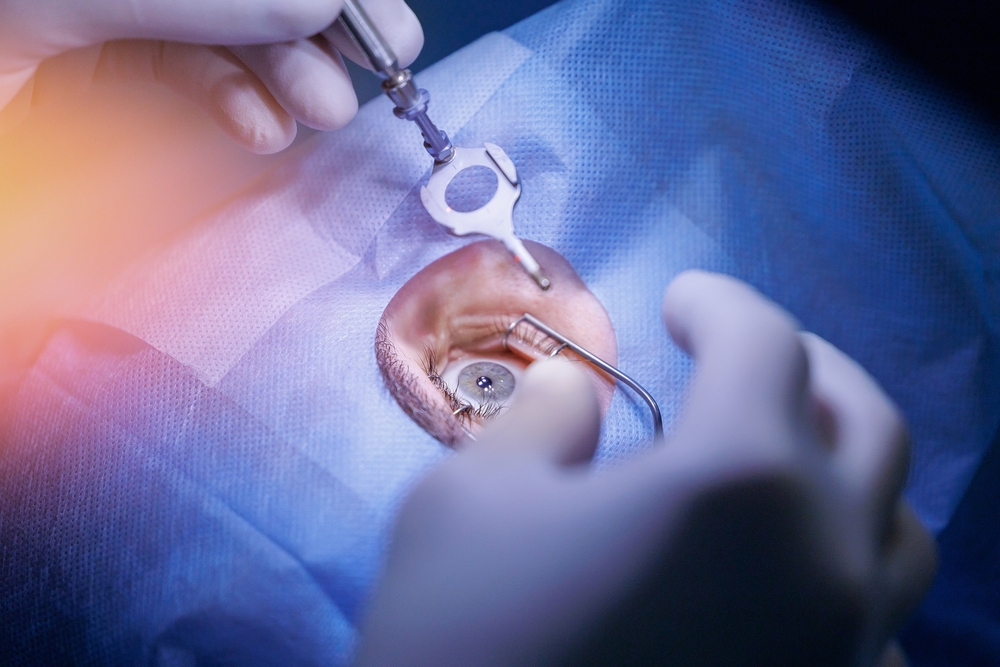
Your vision is one of your most precious senses, and when it's not functioning at its best, it can have a significant impact on your daily life. There are numerous vision correction options available, including glasses, contact lenses, and laser vision correction surgery.
Understanding Laser Vision Correction Surgery
Laser vision correction surgery, also known as refractive surgery, is a procedure that uses specialized lasers to reshape the cornea, the clear front part of the eye, to improve vision. This type of surgery can be an effective solution for individuals with refractive errors, such as nearsightedness (myopia), farsightedness (hyperopia), and astigmatism.
Exploring LASIK
LASIK is a widely popular laser vision correction procedure. During the LASIK procedure, the surgeon first creates a thin, hinged flap on the cornea using a specialized laser or a surgical instrument called a microkeratome. Then, the surgeon uses an excimer laser to precisely reshape the underlying corneal tissue, correcting the refractive error. The flap is then returned to its original position, where it heals naturally without the need for stitches.
The primary benefits of LASIK include:
Fast recovery time: Most LASIK patients experience significant vision improvement within 24 to 48 hours after the procedure.
Minimal discomfort: The LASIK procedure is generally painless, with only mild discomfort or sensitivity to light reported during the first few days after the surgery.
High success rate: LASIK has a long track record of success, with the majority of patients achieving 20/20 vision or better after the procedure.
Reduced dependence on corrective lenses: Many LASIK patients are able to reduce or eliminate their need for glasses or contact lenses after the surgery.
What is PRK?
PRK, or Photorefractive Keratectomy, is another type of laser vision correction surgery. Unlike LASIK, which involves creating a corneal flap, PRK directly reshapes the surface of the cornea using the excimer laser.
The primary benefits of PRK include:
Suitability for patients with thin corneas: PRK may be a better option for individuals with thin corneas who may not be suitable candidates for LASIK.
Reduced risk of certain complications: PRK eliminates the risk of complications associated with the creation of the corneal flap in LASIK, such as flap-related issues or dry eye.
Effective for certain refractive errors: PRK can be an effective treatment for higher degrees of nearsightedness, farsightedness, and astigmatism.
Factors to Consider When Choosing Between LASIK and PRK
When deciding between LASIK and PRK, there are several important factors to consider:
Corneal thickness: If you have thin corneas, PRK may be a better option as it does not require the creation of a corneal flap.
Refractive error: PRK may be more suitable for higher degrees of refractive errors, such as severe nearsightedness or astigmatism.
Occupation and lifestyle: If your job or activities involve a higher risk of eye trauma, PRK may be the safer choice, as it eliminates the risk of flap-related complications.
Recovery time: If a faster recovery time is a priority, LASIK may be the better option, as it generally allows for quicker visual improvement and less initial discomfort.
Personal preference: Some individuals may prefer the slightly lower risk of complications associated with PRK, while others may prioritize the faster recovery time of LASIK.
Determining the Right Procedure for You
The best way to determine which laser vision correction procedure is right for you is to schedule a consultation with an experienced optometrist. During the consultation, the optometrist will thoroughly examine your eyes, evaluate your refractive errors, and discuss your lifestyle and visual needs. They will then provide a personalized recommendation based on your unique circumstances and help you make an informed decision about your vision correction options.
Schedule Your Consultation with Optique Vision Today
Choosing between LASIK and PRK can be a complex decision, but with the right information and guidance from a trusted optometrist, you can make an informed choice that will improve your vision and enhance your quality of life. By understanding the key differences between these two laser vision correction procedures and considering the factors that are most important to you, you can take the first step towards achieving clearer, sharper vision.
At Optique Vision, we are dedicated to helping you achieve your vision goals. Visit our office in Albany, New York, or call (518) 302-2106 to schedule a consultation today to learn more about LASIK, PRK, and which procedure may be the best fit for you.









